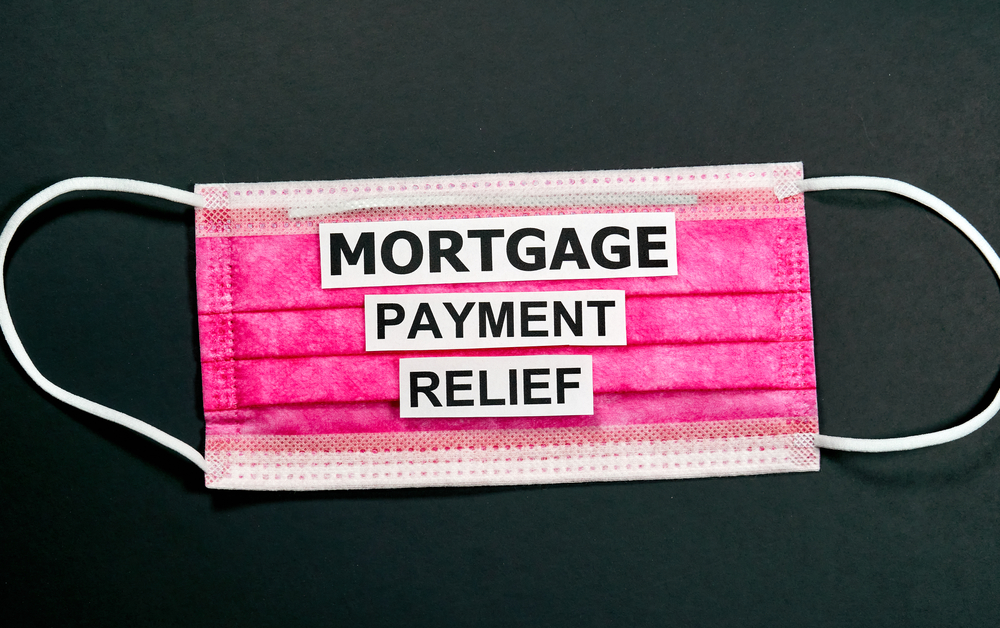Mortgage Payment Relief 2020: Tips & Questions

Homeowners across the country are suffering as unemployment climbs across all industries, making it difficult for many homeowners to cover all of their bills. The Federal government, as well as some private mortgage companies are offering a bit of help by allowing some homeowners to apply for mortgage relief.
While this sounds great, there can be a few pitfalls that homeowners should be aware of before deferring their mortgage payment for an extended amount of time.
The Coronavirus Aid, Relief, and Economic Security Act – or CARES Act, would allow certain homeowners to apply for up to a 12-month reprieve from mortgage payments. The CARES act applies to people that have federally backed mortgages, this can include loans from Fannie Mae or Freddie Mac.
It’s not just the feds who are rolling out plans for mortgage relief, some states have come up with their own plans. New York, New Jersey and California are good examples, each has allowed homeowners to request up to a 90-day reprieve on their mortgage payment.
None of these plans are about mortgage forgiveness but are a postponement of the payment or a reduction in the payment due.
“Lenders offer forbearance, which doesn’t alleviate the expectation of payment, but puts it off,” said Barry Zigas, senior fellow at the Consumer Federation of America in a recent CNBC article.
However, consumer groups have concerns that there are pitfalls for homeowners that they should be aware of before requesting mortgage relief. “Already, there are worrying signs that people are getting the runaround as they seek forbearance or other relief,” said Richard Cordray, former director of the Consumer Financial Protection Bureau in a recent letter to the Consumer Financial Protection Bureau’s current director.
A Few Tips and Questions to Ask
Before you start calling around about mortgage payment relief, consider these questions to make sure it is the right choice for you. As always, you should document every interaction you have with a mortgage servicer, making note of the person’s name and title as well as notes on what was discussed.
Are You Eligible?
If you have a federally backed loan you should be eligible for the CARES act. Check the CARES act website to see if you qualify. If you do qualify you should be eligible for up to 180 days of mortgage relief.
Also check you state programs. As the crisis drags on, more states may put programs in place or require lenders in the state to offer some mortgage relief to homeowners struggling with making a payment due to the virus.
If you do not have a federally backed loan you will have to contact your loan servicer directly to see if they have any programs in place that allow you to defer your mortgage payment. Lenders often sell loans or have outside contract servicing companies that handle the loan after closing so you may have to do a bit of detective work to track down the person who can make a decision on your loan.
What happens to your payments after the reprieve is over?
This is an important question to ask as you need to plan for how cover the deferred payments. While most programs allow the missed mortgage payments to be tacked on to the end of the loan, others may fold the amount missed into future mortgage payments or in some cases you may have to make a lump sum payment covering the missed payments at some point in the future.
All of these options have pros and cons. If you have to make a lump sum payment at some point in the future, will you be able to cover two, three or even more mortgage payments all at once? If your financial situation will not allow that, you may need to look at different options or negotiate for those payments to be made over a longer period of time.
Remember that if the missed payments are tacked onto the end of the loan, it will increase your loan term.
One final option may be to refinance your home. Interest rates have dropped during the crisis and if you have a high interest rate it may make more sense to refinance your mortgage with a new lender, a lower interest rate can drop your payment into more affordable territory.
What Happens to Property Taxes and Insurance?
You should ask what happens to these expenses if your mortgage payment is put on hold for a few months. Property taxes and insurance premiums are often paid out of an escrow account when your mortgage is set up. Will those payments continue even if you are not paying your mortgage?
You may need to do some legwork on this question as the CARES act does not provide a clear answer to this question. If you are receiving assistance from the state level or directly from your mortgage lender they should be able to provide you with an answer to this question.
In addition, you should call your insurance company directly. Some insurers are offering payment relief for customers that are affected by COVID-19. If they are not offering any solutions, you should do everything you can to cover your insurance premium as not paying a homeowners premium can have major repercussions.
Any claims you file, if your home is damaged or a friend or family member is injured on your property, could be denied leaving you on the hook for the costs. If your mortgage lender has to take over the cost of insuring your home they will often use a product called forced placed insurance and this is usually very expensive.
If there is any doubt as to whether your insurance premium is being paid, contact your insurer directly.
